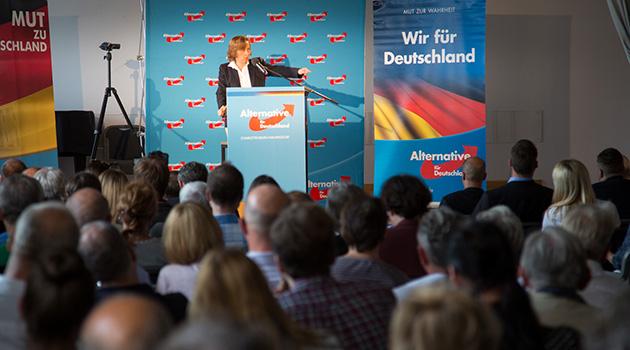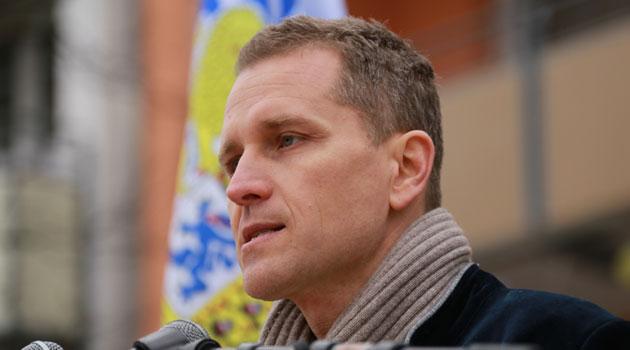German counter-intelligence examines whether to investigate xenophobic opposition party as a whole

German counter-intelligence has decided to examine whether it should begin following the country’s strongest opposition party, Alternative for Germany (AfD), as a whole. Thomas Haldenwang, head of the Federal Office for the Protection of the Constitution (BfV) informed the media of the decision at a press conference in Berlin on 15 January.
Should his office actually decide to investigate the AfD, it will be a step that has no parallel in the history of the Federal Republic, and the anti-immigrant protest party said it will defend itself through legal means. The civil counter-intelligence service is already following the AfD youth organizations in several states as well as specific politicians because of activities that could contravene the country’s democratic, free order.
However, counter-intelligence is not yet following the party per se. Currently counter-intelligence wants to systematically explore, primarily on the basis of public statements by AfD members, to what degree extreme-right tendencies can be found in the group.
They are especially focusing on the party’s wing around the chair of the Thuringian AfD cell, Björn Höcke, and the party’s youth organizations. “We consider this decision to be a bad one, we will take legal measures against it,” said Alexander Gauland, the AfD boss, according to whom the counter-intelligence service’s approach is being influenced by political pressure.
The leader of the AfD members in the German legislature, Alice Weidel, expressed the conviction that the AfD is the actual reason Hans-Georg Maassen was fired as head of counter-intelligence last year. Weidel said she believed the BfV would never have taken such a decision under Maassen.
The head of the service was fired because of several remarks he made that he could not substantiate. This recent announcement by the counter-intelligence service, according to which strict legal requirements must be fulfilled for following a political party, has been supported by German Interior Minister Horst Seehofer (CSU), who emphasized that the investigation would not be based on a political assessment of the situation, but on a professional one.
The move also does not bother the Social Democratic Party (SPD), who are in the governing coalition, or the opposition Liberals (FDP). The AfD leadership, whom many observers consider to be so populist as to be radical right-wingers, wants to avoid being investigated by the counter-intelligence service because that information could have a negative impact on some of their voters, as AfD representatives admitted on 15 January.
Many voters chose the AfD not out of conviction, but as a protest vote, and if the party were to be followed by the counter-intelligence service, they might prefer to cast their ballots for another party. For that reason, in November an AfD working group created a list of recommendations for its members.
They are asking their members to take to heart the recommendation that they avoid across-the-board defamation of foreign nationals, immigrants and refugees. AfD members are also being recommended not to generally cast doubt on whether freedom of religion applies to Muslims.
Because of repeated problems during the space of just one month, Jörg Meuthen, the party’s federal spokesperson, has called on radically-focused politicians to leave the AfD. If the members do not resign on their own, Meuthen said the party will attempt to exclude them.
The AfD to date has significantly profited from criticizing the immigration policy of German Chancellor Angela Merkel and is already represented in all 16 state legislatures. The party is the third-strongest in the German Parliament, winning 12.6 % of the vote in 2017.
AfD politicians draw attention to themselves fairly frequently by making radical remarks. AfD chair Gauland, for example, has said that the era of Nazism was just “bird droppings” on a German history that is one of successes overall, while the chair of the Thuringian AfD cell, Höcke, said of the Holocaust memorial in the center of Berlin that “Germans are the only people who plant a monument of shame in the capital.”
The former boss of the AfD youth organization in Lower Saxony, Lars Steinke, called Claus van Stauffenberg, who made a failed assassination attempt against Nazi leader Adolf Hitler, a “coward and a traitor”. Steinke also made statements justifying the Nazi invasion of Poland.
